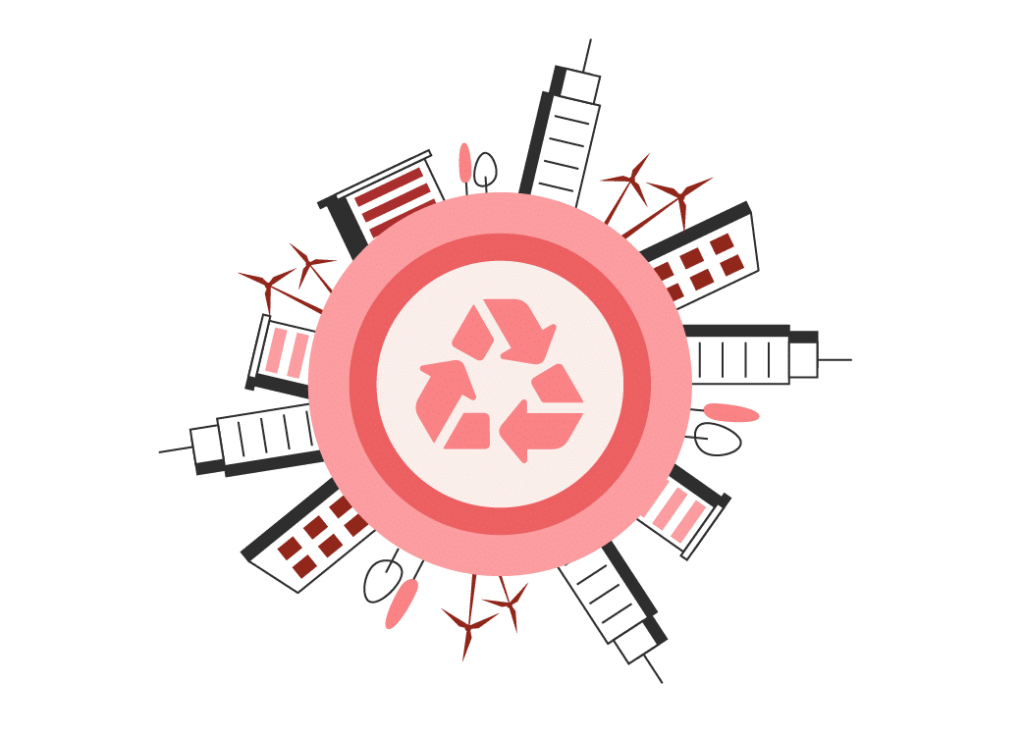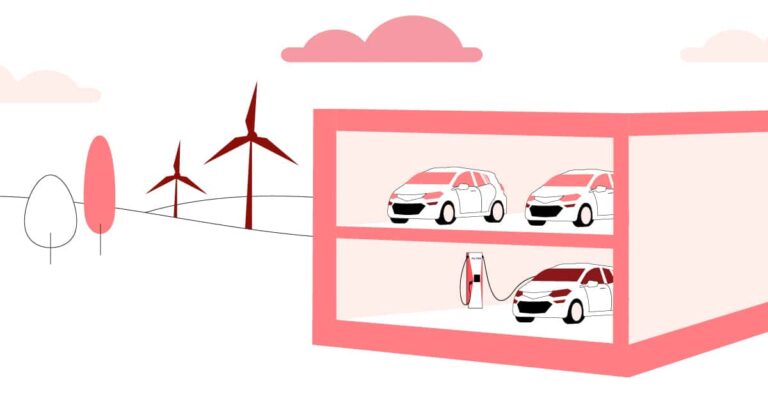The future is approaching quickly as electric vehicles (EV) are coming to fruition with a force. Support for their integration into general consumer society is growing, boosted by President Biden’s plans to electrify vehicles across the country. Automakers are following suit as they commit to an alternative energy future within the next decade. Major brands like Toyota and Volvo have dedicated 40 and 50 percent of sales to be electric by 2025, respectively.
All of these changes and commitments will lead to more residents, office workers, and commuters having their hands on EVs in the coming years. For asset owners, this eventuality poses a challenge and opportunity. They must begin taking an audit of their approach towards electric charging and decide on a path forward. At FLASH, we believe this is a necessary step moving forward, rather than just a convenience.
EVs will be here in the blink of an eye, so it’s best to start planning today. To help jumpstart your conversations and analysis, here are a few considerations and questions to help determine where you are now and where you need to be.
Are you planning new construction, or would you need to retrofit?

Most likely, the first question you need to ask yourself is: What are my plans? Doing so will help you separate whether you need to approach EV charging from a new construction perspective or a retrofit of existing buildings. There are differences in installing the infrastructure for each.
If you have building and parking asset construction planned and you’re reading this now, you’re in an advantageous position. The costs to embed EV capabilities from the ground up are much less expensive than retrofitting a building.
How much less expensive? Approximately four to six times.
And these numbers increase exponentially depending on if you’re building parking for smaller dwellings or multi-family and commercial buildings. Therefore, the savings also increases.
That being said, for any experienced asset owner associated with parking, there will undoubtedly be situations in which you can’t avoid retrofitting existing buildings to match consumer and political demand. It’s important to keep in mind that the benefits of making the infrastructure changes will outweigh the initial costs because of mass consumer adoption of EV. For those deciding to retrofit, you can typically expect costs related to demolition work, along with circuit reconfigurations to ensure your asset can handle the loads.
Whichever situation applies to you, there’s a path forward in your construction to keep your infrastructure up-to-date.
Do you know your local codes and permits?

Building codes are an area of expertise on their own, so be sure to rely on your local construction experts—and FLASH construction experts can help guide you, too! Codes vary widely, and you can never be certain that just because one asset is up to specs, that another in a different area will be as well. Codes will also be shifting and adapting due to new governmental support and regulations for electrification. That means it behooves any asset owner or project manager to do the proper research to ensure the correct methods are followed.
Cities are also making their policies more transparent. In fact, many municipalities require a percentage of parking spaces to be EV-capable, even to get funding or permits. Understanding these requirements will save you from potential headaches later in which you’ve done a large amount of work but have neglected to follow policies.
The good news is that there is a lot of support and information out there to help you understand new EV building policies. For example, the Southwest Energy Efficiency Project (SWEEP) put together an EV building code “Adoption Toolkit,” with a link to various building codes for different cities around the country. Checking resources like this and speaking to your local municipal guides can help you avoid issues in the future.
What type of EV will you need?

There are a couple of factors in determining the type of EV stations you will need. The two main ones are the types of cars you’re seeing and what kind of building you have. Both are determined by having an intimate knowledge of who uses your asset.
Some car manufacturers, like Tesla, have more proprietary charging technology. This means you’ll need to ensure that you have the equipment necessary to help with cross-brand charging, such as the Tesla to J1772 adapter that allows non-Teslas to utilize their charging docks. You’ll also need to install the right level of charger. There are three levels of charging for EV, each ranging in charging speed. They’re named—you guessed it—levels 1, 2, and 3.
Level 1, which can be used in a standard wall outlet, is the slowest and takes many hours to fully charge a vehicle. Level 2 is the most commonly seen and can be used in private homes and public settings, such as workplaces. It will typically charge a battery during a work day. Level 3 is an advanced charger that uses a DC plug system instead of the AC systems of the lower levels. It can charge a battery extremely quickly, however it requires massive amounts of energy.
Chances are you’ll be setting up a level 2 system, unless you’re building large commercial projects like shopping centers, which can benefit from the quick systems of level 3. Once you determine the type of charging, you’ll have to ensure your infrastructure is electrically equipped to provide that amount of power.
Will you integrate it with existing systems?
EV systems can become an impactful section of your service offerings rather than remaining siloed. To that end, it will be beneficial to connect your charging programs with other services you might be offering.
An excellent place to start is to centralize your data. A helpful system would allow your EV performance to be shown alongside your other PARCS data. This way, it will be easier to see how your EV programs contribute to the larger picture, and you can use other data to help optimize your services. Once you’re ready to get more ambitious and creative, you can ask for more from your PARCS providers.
We’re proud to have the only technology stack that integrates PARCS with valet services. How might you benefit from such an integration? Consider how you’d be able to use valet services to shuffle fully-charged EV vehicles around, allowing for uncharged cars to be rotated in.
How will you regulate your EV services?
When you’ve decided to tackle EV integrations, you’ll also need to determine how to encourage fair usage and regulation. This means devising a system in which, essentially, everybody gets their turn.
Presuming you have a stable PARCS system, your data should be able to tell you how many EV cars pass through your gates in a given period of time, whether it’s daily or monthly. Your systems should ideally even be able to capture real-time data, such as how many EV stations are occupied at a given moment. Once you have a better sense of your demand for EV, it will be beneficial to determine how best to service all of your customers. Often in systems that aren’t as regulated, there are situations in which a car has finished charging and remains in the spot for some time, which blocks other people from topping off.
Such as with our PARCS and valet integrations explained above, consider a solution in which fully charged cars are rotated to make things as efficient as possible. It’s sophisticated—we know. But, you’ll get more cars in rotation, leading to more time for new customers. Determining how you’re going to make sure your EV program runs is almost as essential as the decision to run it.
Consider the Entire EV Program When Constructing
Each of the above considerations and questions is key in determining how to approach building EV capabilities in your assets, whether in new construction or retrofit projects. Your responses will allow you to properly map out how charging stations would fit into your current applications. Take the time to talk with your managers, owners, and parking leads to determine how best to prepare for an EV future.
FLASH can help you get there with our unique mix of technology and construction specialists, along with a deep understanding of EV. Learn more about what we can do by scheduling a demo or contacting our team.
Join the Parking Revolution, Subscribe
to Our Newsletter
We’re disrupting the parking industry because we believe our customers, consumers, and cities deserve better.

